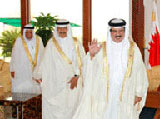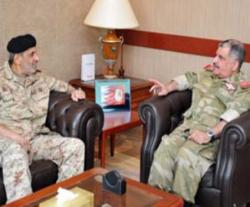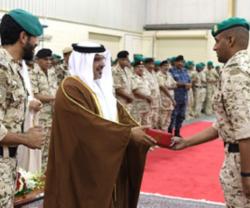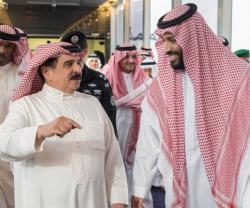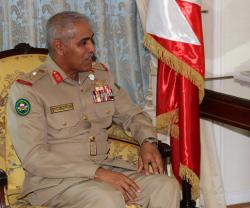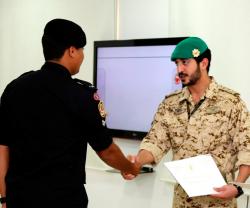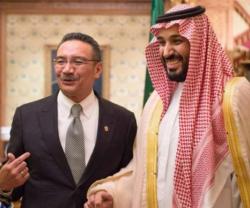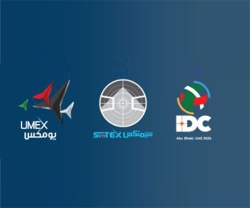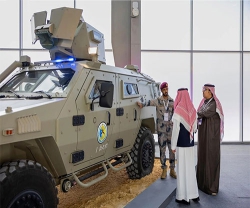"We have ordered the executive and legislative authorities to take the necessary measures to approve the agreements," HRM King Hamad said in a speech shown on state television. He also ordered a pay rise for civilian and military government employees.
He was speaking in the presence of HRH Prime Minister Prince Khalifa bin Salman Al Khalifa and HRH Prince Salman bin Hamad Al Khalifa, Crown Prince and Deputy Supreme Commander, and National Dialogue participants led by Parliament, and Dialogue Chairman Khalifa Al Dhahrani who submitted to him the talks' final visions.
Al Dhahrani said: "Out of our national responsibility towards Bahrain, its people and future, and in line with Your Majesty's noble initiative to launch a National Consensus Dialogue without preconditions, we have worked with good intentions and dedication and with the support of your loyal people, have overcome all challenges and obstacles. Our goal has been to achieve national consensus for the sake of reaching common grounds in order to meet the Bahraini people's expectations of peace and justice."
"We submit to Your Majesty this report on the agreed upon visions on the four themes of the National Consensus Dialogue (political, economic, legal and social) and the special theme regarding communities of residents related to comprehensive national issues and another dedicated to expatriate communities, in tribute to their contributions in the Kingdom's comprehensive development march. We have encouraged participation at the dialogue table through openness to all viewpoints voiced by all social spectra."
Meanwhile, a summary of the National Dialogue's proposals sent to Reuters said the delegates "did not agree on whether the Shura Council (Upper House) should be granted the same powers as the parliament, and whether the responsibility for lawmaking and oversight should be restricted to the elected chamber".
"Delegates did not reach consensus on a number of further suggestions, such as limiting the term for Ministers and Head of Government or a fixed quota for women in parliament," it said.
The appointed Upper House has just as many seats as the elected Lower House and dominates the legislative process. There was no agreement on allowing opposition groups to call themselves political parties.
However, tens of thousands marched outside Bahrain’s capital Manama on Friday to protest against the results of a “National Dialogue” they said had failed to bring real democratic reform in the Kingdom.
Opposition groups argued their voice in the dialogue was overshadowed by a majority of pro-government participants.
Wefaq, the largest Shia opposition group, walked out of the dialogue several weeks ago and members said they felt their actions were justified after the body’s results were announced.
“The government thought the results were great. We thought they were nothing. There’s no fully elected government, no reforms to the voting system - it’s a one-sided deal,” said Wefaq Leader Sayed al-Mousawi.
Source: TradeArabia New Service; Gulf Times; Reuters

